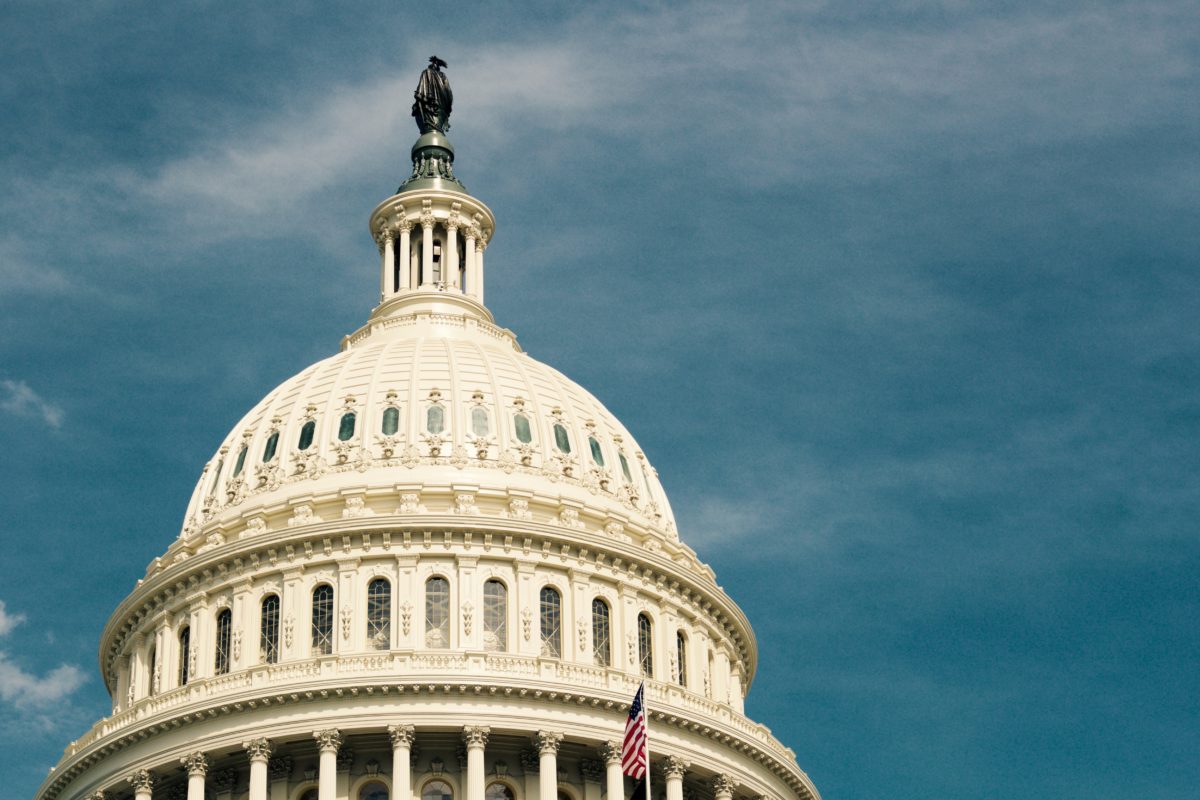The Greatest Risk to Americans Is the Federal Government, Not Bank Failures
Crossposted at The Wealth and Poverty ReviewOne of the benefits of bankruptcy and economic failure of banks, financial exchanges, and businesses is that such events shine light on the direct and indirect causes of insolvency. The recent failure of two major banks—Silicon Valley Bank and Signature Bank—and the forced bailout and recapitalization of First Republic Bank, have caused some chatter projecting these developments as harbingers of falling dominoes—leading to the collapse of the U.S. financial system.
Globalist Deep State players may be pushing that narrative to promote fear which can prompt banks runs for the purpose of consolidation and centralization of banking institutions, which is a necessary stage to roll out a central bank digital currency (CBDC). But Americans should not be fooled. The balance sheets of American banks are stronger today than they were at the time of the 2008 financial crisis. The main problem is that the inflation that has been triggered by Biden’s policies has now enveloped the economy, driving interest rates up and valuation of all banks’ bond portfolios down.
The core of most financial and business failures is management’s bad judgment and loss of discipline—both moral and financial. In fact, economics and morality are brought together in an axiom known as “moral hazard.” Moral hazards are situations where financial actors such as banks and brokerages have incentive to take more risk as they bear less and less of the cost of that risk. For instance, banks like SVB are likely to make more risky loans when they know that government views them with political favor and will bail out the bank’s depositors even beyond the FDIC protection limits.
SVB’s recent failure had two main components: 1) Losses from excessive lending to new and unproven companies in the politically favored climate technology and sustainability sector: and 2) The loss of capital from bank management’s failure to hedge against bond price declines from inflation and higher interest rates. This led to a forced sale in SVB’s bond portfolio—resulting in a $1.8 billion impairment of critical bank capital.
It’s good that the specific links in the chain of moral hazards that brought about the financial collapse of 2008, which precipitated the Great Recession—a national economic crisis considered second in severity and duration to the Great Depression of the 1930s—are not present today. But we need to see links in new chains of moral hazard that have developed.
Looking back, the seeds of the 2008 crisis were planted a decade earlier. Political pressure was brought to bear on the Department of Housing and Urban Development (HUD) to increase affordable housing. HUD in turn pushed the Government Sponsored Enterprises—Fannie Mae and Freddie Mac—to accept and purchase subprime mortgages. Banks then responded by increasing lending to weak borrowers unqualified for conventional loans, utilizing the more lenient underwriting requirements of subprime mortgages, knowing that those loans would not stay on their books. In 2007, the year before the collapse, about 40 percent of new mortgage underwriting was in the risk category of subprime loans, which were securitized and sold to investors, with the bulk going into the portfolios of Fannie Mae and Freddie Mac.
Fannie and Freddie had a pivotal role in the U.S. housing market for several prior decades. They were considered blue chip stocks and “too big to fail” due to both the size of their mortgage portfolios and their role in providing liquidity to the mortgage market. But because of the politicization of their business that led to huge growth of subprime mortgage acquisitions, by 2007 both companies were reporting losses from growing defaults in their subprime holdings. Less than a year later, by April of 2008, both companies collapsed—requiring a $187 billion bailout from the taxpayers through the federal government.
Looking ahead, the greatest risk to the U.S. economy is not private sector bank failures. The real risk to America’s financial stability is rooted in the public sector.
First, we have an out-of-control federal government that has grown into a leviathan of vast bureaucratic, unaccountable, and highly politicized agencies that undermine efficient and impartial allocation of resources by favoring some industries and hurting others. Second, we have a Congress that is a handmaiden to increasing systemic moral hazard through fiscal policy—passing for example the $1.2 trillion “infrastructure bill” of 2021, making available hundreds of billions to unproven technologies directly and indirectly through subsidies and household tax credits. Third, we have a Federal Reserve whose monetary policy accommodates endless government deficit spending and national debt growth, while largely failing at its primary job—keeping interest rates low while promoting full employment. In practice, Fed policy has fluctuated between inflationary expansion of the money supply through low interest rates, and then counter policies that contract the money supply by sharp interest rate increases, which often precipitate recessions.
America is undergoing a cultural and political war not unlike the cultural revolution that consolidated Mao’s power and control in China. The free market system in America is a critical line of defense. It is preferable for the allocation of resources to be driven by people’s preferences expressed through the free market, then it is for government to pick winners and losers and push an economic agenda through subsidization and regulations that favor a minority. Socialization of unproven products and businesses—whether in alternative energy, vaccines, agriculture, or climate—should end.
We must remember that expanding government’s intrusion into the private sector doesn’t come without great risk. The fact is that the renewing and self-correcting nature of the private sector is lost in the public sector, where accountability is impaired by obfuscation of responsibility, failure gets socialized, and special interests benefit even when the public good is ill-served.
It’s far better for America’s citizenry and businesses to have the strength and resourcefulness that comes from free exchange of ideas and information, creativity, honesty, and self-reliance than to have a dependence on a profligate and corrupt government.
